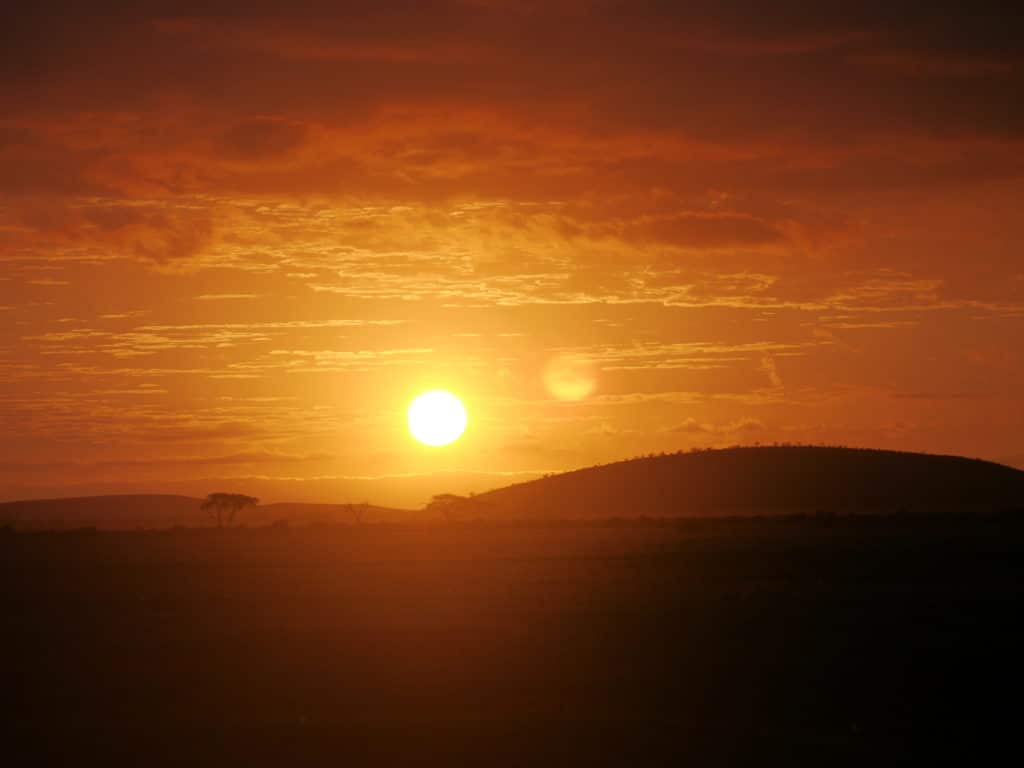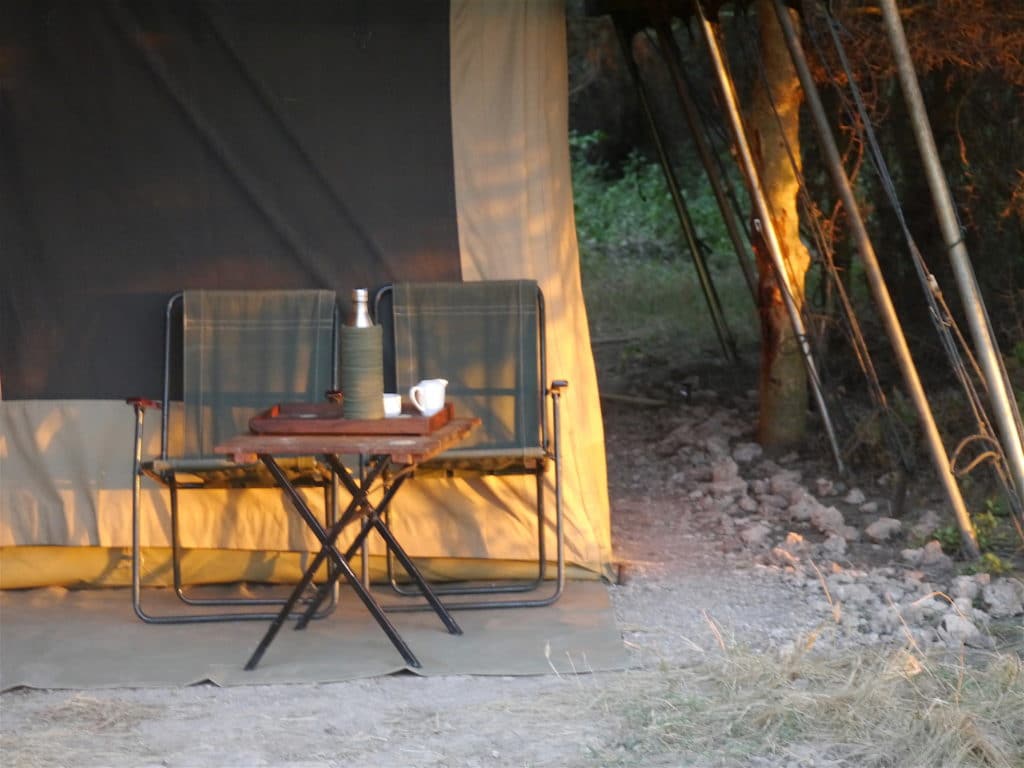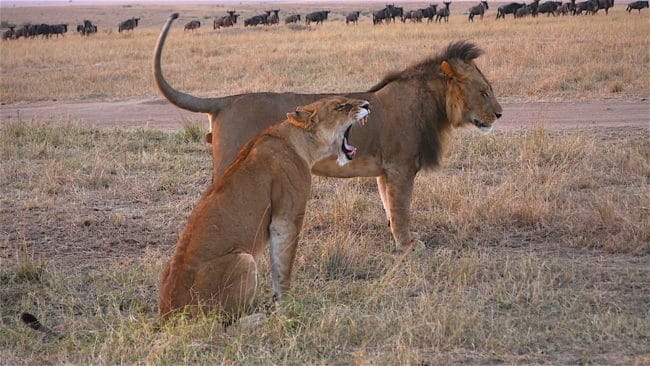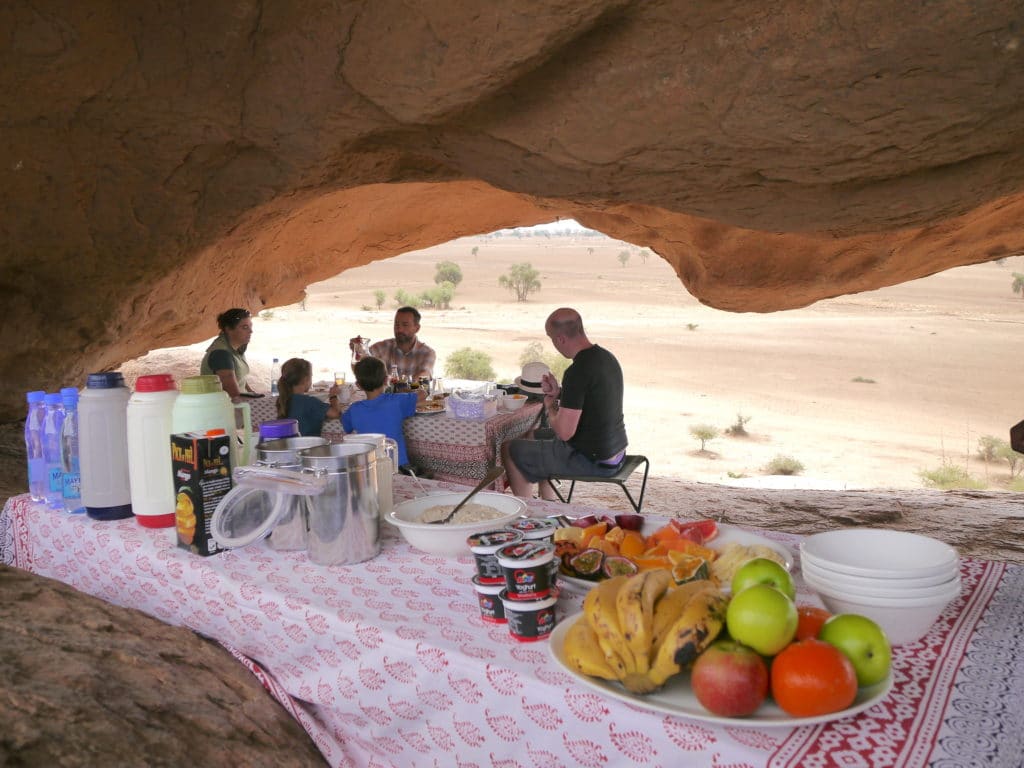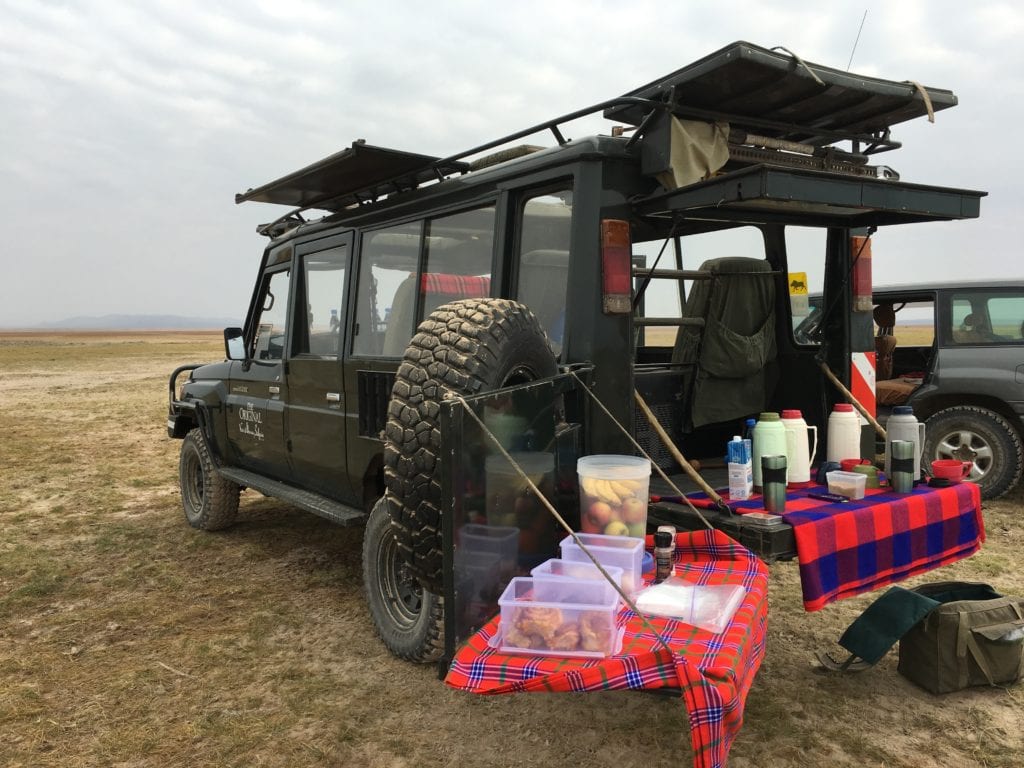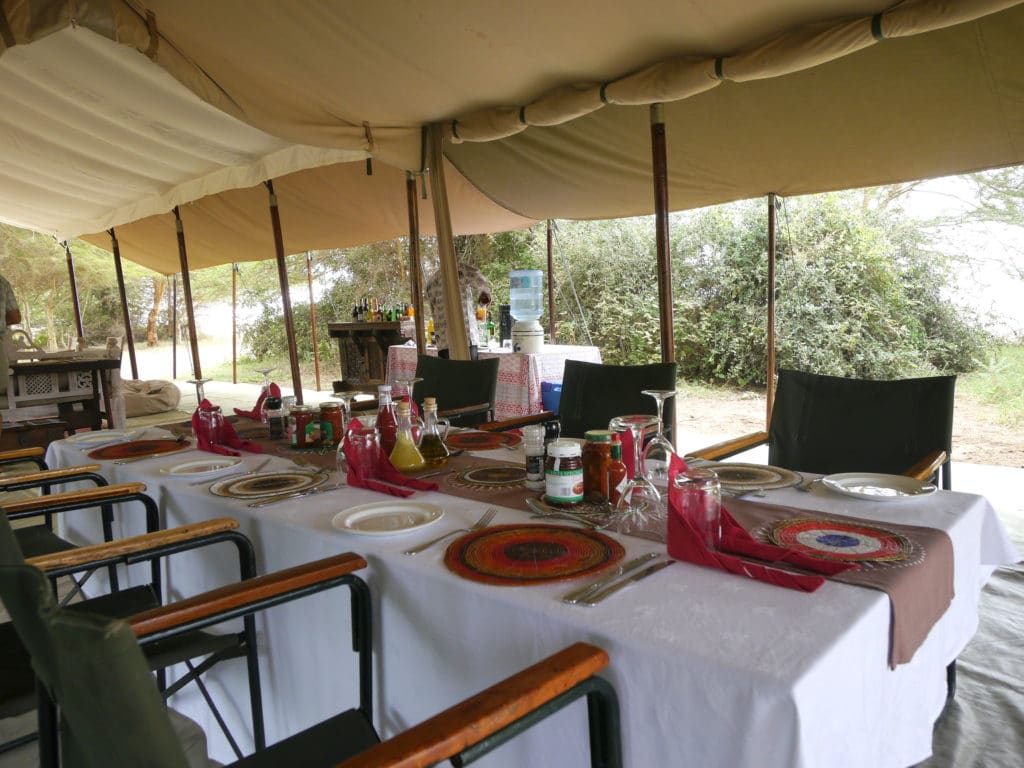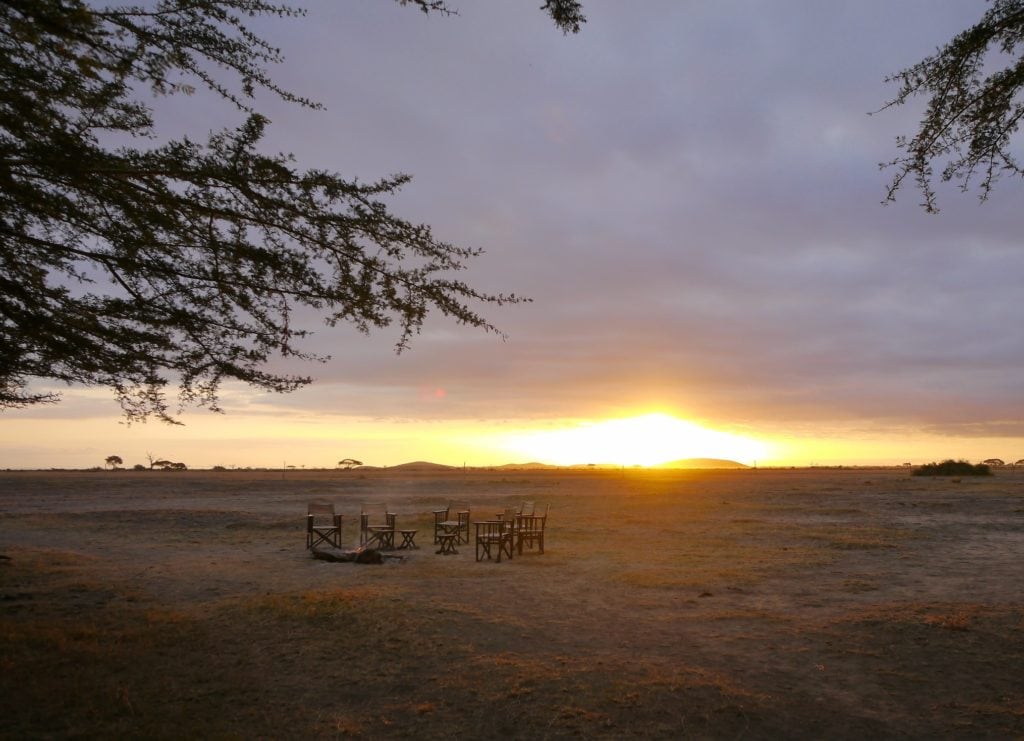You hear all the fuss about safaris, but have you ever wondered what a day out in an African reserve is all about? Look no further as I’ll tell all about a day in the life of a safari goer. And don’t forget to check out the many curious facts about safaris.
1. Start to a typical day on safari – Getting up early
Safari life starts at sunrise because that is when animals are most active and you want to be out and about to catch them do something fun, like chasing prey or hiding from predators or just being visible. As the day goes on, the sun comes up, and in the summer months it can be really hot outside. So, furry animals tend to seek refuge in the shade, in the tall grass or up in a tree, so they will be harder to spot.
Wake up calls in the bush do not usually entail alarms but rather the voice of your guide softly whispering through the door. Just kidding, he will most likely yell your name and knock hard on the door to bring you back from the sweet dreams you were having. On the flip side, he will also leave hot coffee or tea and often times, some biscuits for you to have a sweet start as proper breakfast will only happen later on after your morning game drives.
Jump out of bed, fill your cup of coffee, munch on your biscuits and put on your bed safari outfit. You are ready to meet The King of the Jungle!
2. Morning game drive
Your guide will take you out as soon as the first rays of sunlight start to pierce through the bushes. Jeeps used on safari are open-top so that you can spot wildlife more easily, but in the early hours when it is still chilly, the top might be closed. Wear layers like an onion, so you can take them off when the temperatures start to warm up.
Game drives are easy to picture. You are in a car and the guide drives you around the bush, that is really all there is to it. The excitement comes from the wildlife spotting and that will be very much dependent on a) luck and b) how good of an eye your guide has. After a few days out you may start differentiating a zebra from an acacia tree, but the truth is that your guide is a hundred times better at spotting any animal in the distance than you will ever be, so his skill is what makes a game drive successful.
And when you spot an interesting animal? The car will pull up close to it and the engine will stop so you can marvel at the beauty and majesty of an elephant or a lion and take as many photos as you possibly can. Many 4×4 jeeps will have a roof you may be able to sit on or at least seat covers so you can stand up for a better view. Remember not to wave your arms outside of the car. Animals do not usually attack safari cars because they appear larger than them (except for elephants). The animals have also never been attacked by jeep, but if you change that perception with loud sounds or threatening waving, you may be the first one to be attacked by an elephant bull.
Morning drives may last anything between 2-3 hours or even carry on until lunch time, it depends on the lodge, the guide and the place. Your guide will advise on the plan the night before. At many lodges I have been to, the early morning drive is short, maybe a couple of hours, and you then return to the lodge and have a sit down hot breakfast with eggs, waffles, meats and fresh fruits. In other places, like with Howard in the Maasai Mara, we would leave early, pack breakfast and only return at lunch time. The type of guest and the group you are paired with may also determine the type of safari. This is due to younger safari goers and kids that tend to get tired sooner, so the lodges split the mornings up to make it more bearable.
3. Breakfast in the wild
Either way, mid-morning will equal a hot breakfast, be it in the wild or back at the lodge. Get ready for a hearty cook up with meats, eggs and fruits, as well as bread. Safari ain’t places to lose weight.
If your breakfast is in the wild, the guide will open the back of the car and put up a picnic style selection of goodies to indulge in. Coffee or tea will be provided again and you can enjoy the surroundings and the peace. If you are back at the lodge, your sit-down affair will surely leave you ready for some rest. But don’t go for a siesta just yet because other activities or more game drives will await you after you’ve replenished your energies.
4. Second morning drive
With a belly full and warmer weather, the guide will drive you back out into the bush for second servings. Since the temperatures are getting higher, wildlife is likely to start retreating to cooler places – so look up more than down.
Sometimes after breakfast lodges also offer other activities to break out the game drives. Maybe there are cultural activities back at the lodge, or you can go on a river canoeing trip, or take a helicopter, ride horses, or simply go on a walking safari with an armed guide. If that is available, do not miss the opportunity of experiencing a slower but closer encounter with nature. You will get to track footprints, smaller animals, insects, birds and life beyond the big game and it can be super fascinating.
5. The middle of a typical day on safari – Lunch
Lunch is almost always served back at the camp or lodge. On certain special occasions and locations, I spent lunch outside as well, in the wild, similar to the breakfast picnic in format. But that only happens when you are trying to get somewhere that is far, like when I was in Namibia and we went on a full-day Skeleton Coast safari which took 8h.
Usually, lunch is a formal setting with china and wines served to accompany 3-course meals (not that you spent a lot of energy on the game drives). However, if the area is bumpy, filled with dunes or has difficult terrain, the driving can actually require you to hold on tight in which case you may end up exercising a fair amount, as if you were on a really long roller coaster.
6. Afternoons in the bush
Afternoons in the bush are invariably spent relaxing. That may mean chilling in the shade with a book, looking through the hundreds of photos you have taken, playing board games with fellow travelers or taking a dip in the pool. Nothing much happens from lunch until a couple of hours before sunset. That is because it is usually too hot for animals to go out, so there is no point in going on game drives as you won’t spot anything. Best to conserve your energy.
As tea time approaches, cakes, scones, biscuits and tea or coffee will be brought up and you will get ready for the evening game drive.
Some lodges or camps may offer afternoon walking safaris or other activities. In the north of Namibia I went on a quad tour of the dunes and also on a visit to the Himba tribes and in Zambia I went on a Victoria Falls helicopter ride.
Either way, most afternoons will end with a beautiful sunset with famous gin and tonics, the drink of choice of the British Empire Army. This is enjoyed at a great view point where the guide will drive you. And of course drinks would be lonely on their own, so some snacks will surely accompany the tonic. And those sunsets are the most amazing you will ever see, especially the colours of the sky.
7. The end of a typical day on safari – Evenings by the camp fire
After the sun sets the temperatures may drop again. You will return to the camp or lodge, take a shower and get ready for another sumptuous and luxurious dinner which will invariably include some candles, freshly prepared local food and more wines. Dinners are the main meal of the day on safari. They are the most elaborate and the most romantic. Your lodge or camp team may set up a table for you on your deck, your room, your tent or in an isolated but beautiful location if you so wish. At many lodges, dinners are also times when the entire lodge comes together so, if you are staying at a place that favours interaction among guests with longer common tables, this is the time to exchange stories, tales of the wild and of big game. Just like the first hunters and explorers used to do.
And after dinner? What about some whiskey, some more wine or another gin and tonic by the camp fire to keep those mosquitoes away? A fire will surely be lit up by the staff because no evening in the bush can finish without some more anecdotes and stories and a star-studded sky. You have never seen the sky like on safari. Away from the light pollution of the cities, the Milky Way will show itself to the naked eye. Prepare to be wowed.
- Check if you need a visa, get help processing it at iVisa.
- Never ever leave without travel insurance. Get affordable coverage from World Nomads or long term insurance from Safety Wing.
- I find all of my flights on KAYAK. Check their Deals section too.
- Search for all your transportation between destinations on the trusted travel booking platform Bookaway.
- I book all my day trips and tours via GetYourGuide, they are the best and their tours are refundable up to 24h in advance.
- Get USD35 off your first booking with Airbnb.
- Compare hotels EVERYWHERE at HotelsCombined and book with Booking.com.
- Compare car rental prices at Rentalcars.com

